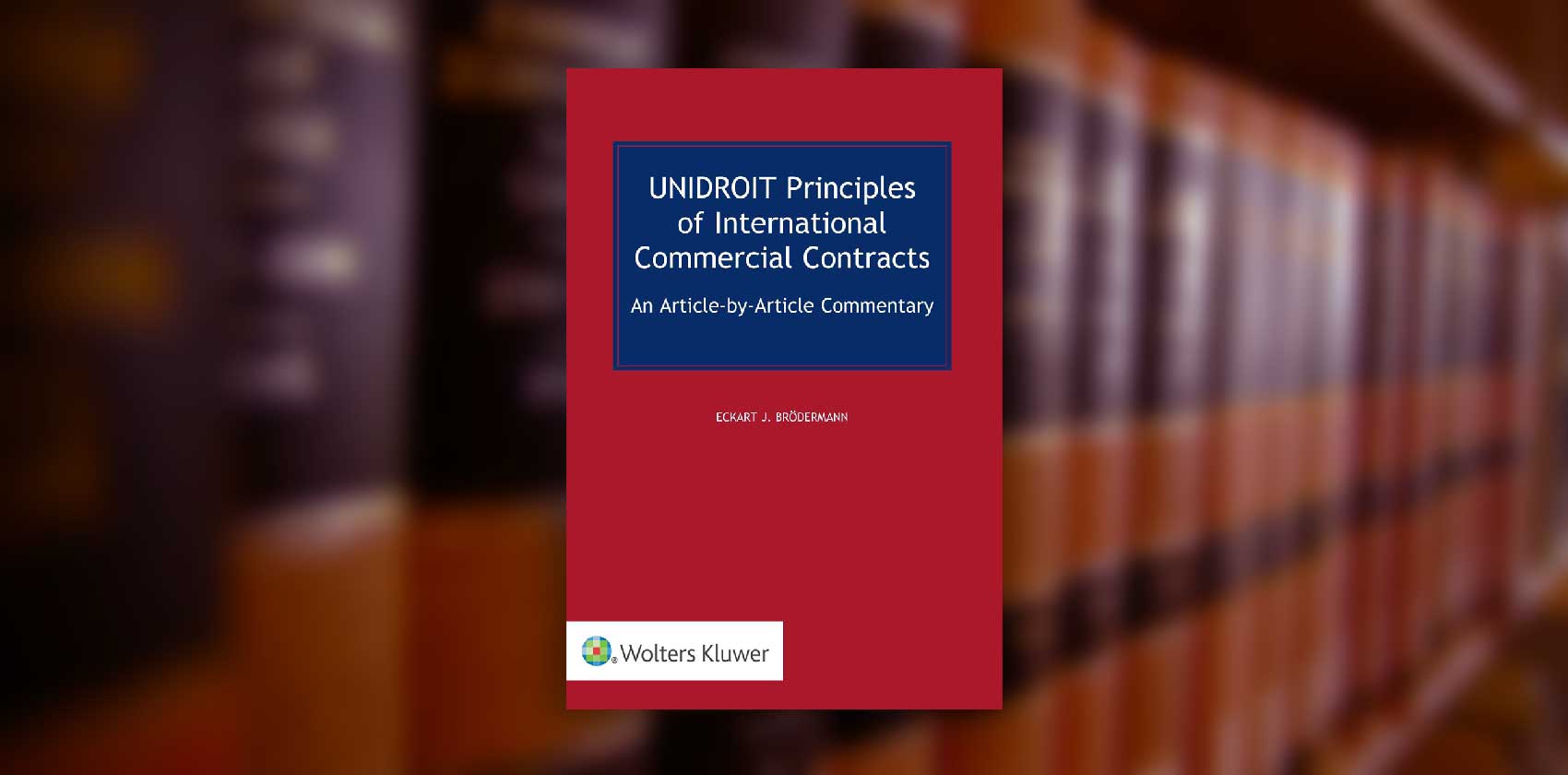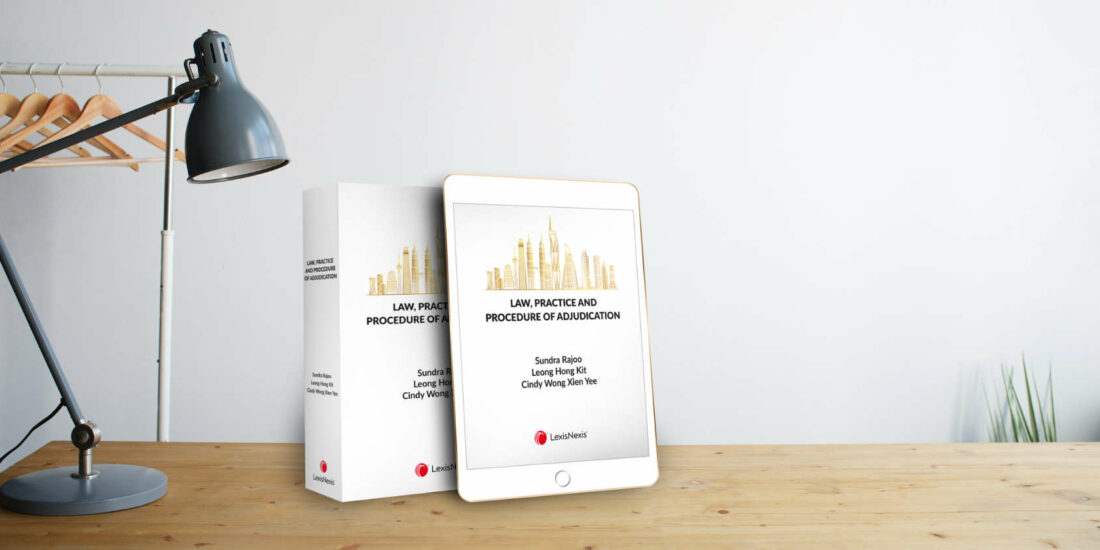
UNIDROIT Principles of International Commercial Contracts
UNIDROIT Principles of International Commercial Contracts – An Article-by-Article Commentary by Eckart J. Brödermann
A standard (American) English dictionary defines “vade mecum” as a manual or guide “sufficiently compact to be carried in a deep pocket”.
Given the deep-pocket costs of international litigation and arbitration, the expression is particularly apt in the context of a review of a new book by Professor Eckart Brödermann, UNIDROIT Principles of International Commercial Contracts, An Article-by-Article Commentary.
A manual or guide is a “how to” book. Its purpose is to tell the reader what to do in a particular circumstance. It is a tool and, as such, must be fit for practical use. As Prof. Brödermann realistically accepts in his Introduction, the Commentary “is written in the expectation that nobody is likely to read such a book from cover to cover”.
The format of the book follows from its full title. The Articles of the UNIDROIT Principles are set out sequentially, followed by analysis and discussion, and identification of any limits to the principle under consideration. The text is extensively cross-referenced “(à Art. XX)” and copiously footnoted. In almost every paragraph, some words or phrases are in bold. The author also frequently uses brackets to augment a definition, or qualify the analysis. This makes, unavoidably, for quite a dense read but, regarded as a vade mecum, it is none the worse for that. The tool works; the author has no need to “apolog[ise] to all native English speakers who would never use so many paretheses and enumerations”.
The proof of the pudding is in the eating, so the saying goes. How then does the book perform in practice? As an instrument of transnational soft law, it is no surprise that the UNIDROIT principles are only infrequently referred to in black-letter English contract case-law. As luck would have it, however, the UK Supreme Court did just that in the very recent judgment of Rock Advertising Limited v. MWB Business Exchange Centres Limited, [2018] UKSC 24 (16 May 2018).
One of the two fundamental issues raised in MWB was whether a contractual term prescribing that an agreement may not be amended save in writing signed on behalf of the parties (commonly known as a “No Oral Modification” clause) was legally effective.
In reliance (among other provisions) on Articles 11 and 29(2) of CISG (the Vienna Convention on Contracts for the International Sale of Goods), and Articles 1.2 and 2.1.18 of the UNIDROIT Principles (see, MWB at ¶¶ [13], and [16]), Lord Sumption, in delivering the main judgment, concluded at ¶[15] that “there is no conceptual inconsistency between a general rule allowing contracts to be made informally and a specific rule that effect will be given to a contract requiring writing for a variation”. Noting that the scope of UNIDROIT Article 2.1.18 might, on different facts, be limited by principles of good faith, abuse of rights or estoppel, Lord Sumption concluded that the oral variation of the contract which contained a “No Oral Modification” clause was invalid for want of writing and signatures (MWB, ¶[17]).
The Commentary sets out UNIDROIT Article 1.2 with the following comment:
“Art. 1.2 (inspired inter alia by Art. 11 CISG) [f/n1] states freedom from form as a fundamental principle of international trade. This entails both contract conclusions and modifications [f/n2] (argumentum Art. 3.1.2). With respect to form, Art. 1.2 is more specific and thereby trumps Art. 3.1.2. [f/n3]”
Footnote [2] refers both to the Official Comments to the UNIDROIT principles, and continues “see also Art. 2.1.18”.
It can, therefore, be seen that the Commentary has covered the ground with commendable brevity, (i) noting the link between UNIDROIT Article 1.2 and Article 11 CISG; (ii) cross-referencing UNIDROIT Article 3.1.2; and. (ii) footnoting UNIDROIT Article 2.1.18.
On the facts of MWB, UNIDROIT Article 3.1.2 was, indeed, “trumped”, so need not detain us further. On taking up the invitation to look at UNIDROIT Article 2.1.18 in the Commentary, the reader will find further useful comment (not set out here because of its length), which correctly identifies that UNIDROIT Article 2.1.18 is similar to Art. 29(2) CISG, and makes the further points that (i) such provisions are frequently found in international construction contracts and other long-term contracts, and (ii) it “serves the goal of legal certainty … which is particularly important in cross-cultural contexts (…).” The comment concludes that: “It is therefore important to enforce and not to undermine such a clause.”
Until the UK Supreme Court delivered judgment in MWB, the effect of an oral variation in the face of a “No Oral Modification” clause had been unclear in English law. Precedent authorities were a mixed bag. In MWB, the Court of Appeal had overturned the first-instance judgment. The UK Supreme Court, in turn, overturned the Court of Appeal. The Commentary (though not available to the UK Supreme Court – it heard the case on 1 February 2018) fully contextualises the applicable Articles, and accurately analyses their application and effect.
It may be asked whether there is a need to be met by the Commentary, given that the UNIDROIT principles are published as a free-access downloadable public resource, together with accompanying Official Comments. Replicating the analysis of the issue in MWB using the Official Comments is instructive.
The Official Comments to UNIDROIT Article 1.2 expressly refer to UNIDROIT Article 2.1.18 (among others), where the reader will find some illustrations of the principle. Some of the ground covered is, therefore, the same. But, whereas the Official Comments are explicatory and illustrative, Prof. Brödermann’s Commentary sets the UNIDROIT principles in their broader context, and contains copious references to other useful material and comment. As Prof. Brödermann himself writes: “The overall approach of [the] Commentary is rather practical than academic”.
Prof. Brödermann’s Commentary and the Official Comments are, in truth, complementary. A practitioner navigating the UNIDROIT Principles of International Commercial Contracts would do well to have the Commentary open on the desk, and the Official Comments open on the screen.
Prof. Brödermann writes with more elegance than his own self-deprecating reference to his use of “global English (Globish)” would suggest, and his command of specialised English vocabulary seldom falters.
He is to be congratulated on a lucid and insightful analysis of a technical transnational legal instrument. The Commentary is a compact and indispensible guide.

UNIDROIT Principles of International Commercial Contracts, An Article-by-Article Commentary, by Eckart J Brödermann, © 2018, published by Wolters Kluwer.






